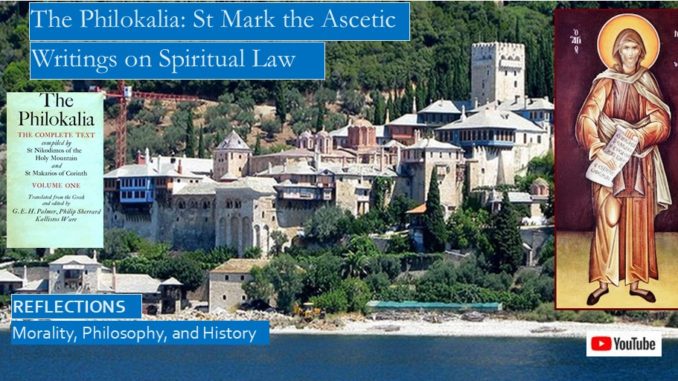
St Mark the Ascetic explores what St Paul means “when he says that ‘the law is spiritual’” in Romans 7:14. Following the commandments with a kind heart and eager spirit makes us free, it is not a burden. The Decalogue and the Spiritual Law both teach that we should first cleanse our thoughts, then cleanse our words, so our actions may be virtuous. “Just as a thought is made manifest through actions and words, so is our future reward through the impulses of the heart.”(28) Our thoughts either lead us to God or they lead us astray, “No cloud is formed without a breath of wind, and no passion is born without a thought.”(180)
YouTube video: https://youtu.be/7Heuz7tRlBc
More by St Mark the Ascetic: http://www.seekingvirtueandwisdom.com/st-mark-the-ascetic-blog-1-no-righteousness-by-works/
Psalms 1 declares that it is a delight to follow the Law of the Lord:
“Happy are those
who do not follow the advice of the wicked,
or take the path that sinners tread,
or sit in the seat of scoffers;
but their delight is in the law of the Lord,
and on his law they meditate day and night.”[1]
You cannot cherry-pick which commandments you should follow and which ones you should ignore. Little sins vs whoppers, scrupulously avoiding small penny sins to save up for the whoppers you need to be forgiven for when you hide thousands of dollars of defects when selling your house or when you need to ruin someone financially to steal their business. St Mark the Ascetic teaches us, “Those who do not consider themselves under obligation to perform all of Christ’s commandments study the law of God in a literal manner, ‘understanding neither what they say nor what they affirm.’ (1 Tim 1:7) Therefore the think they can fulfill the law by their own works.”(34)
“Do not seek the perfection of the law in human virtues. . . Perfection is hidden in the Cross of Christ.(31) The law of freedom by true knowledge, and is understood through the practice of the commandments, and is fulfilled through the mercy of Christ.”(32)
“Fulfilling a commandment is one thing, and virtue is another, although each promotes the other.(193) Fulfilling a commandment means doing what we are enjoined to do; but virtue to do it in a manner that conforms to the truth.”(194)
Many have a shallow understanding of the Commandment against bearing false witness, many think this means, Do Not Lie, so they feel they can say anything true even if it is hurtful. The true positive form of this commandment is we should guard our neighbor’s reputations in both our thoughts in in our speech. St Mark the Ascetic teaches us, “Do not listen to talk about other people’s sins, lest the form of these sins are imprinted on you.”(152) “If you come across people gossiping idly, consider yourself responsible for their talk,”(154) for you are guilty if you do not defend your neighbor’s reputation.
When we break the last of the commandments, Do Not Covet, Do Not Envy, we risk that this sin will lead us to breaking all the other commandments as well. “If one becomes angry with one’s neighbor on account of riches, fame or pleasure, one does not yet realize that God orders all things with justice.”(108)
Likewise, these teachings of St Mark the Ascetic are reflections on the commandments Do Not Steal, Do Not Adulter, Do Not Covet. “The intellect is blinded by these three passions: avarice, self-esteem and sensual pleasure.”(101) “We must hate avarice, self-esteem and sensual pleasure, as mothers of the vices.”(105) “When you hear the Lord saying that if someone does not renounce all that he has is ‘not worthy of Me,’ apply this not only to money but to all forms of vice.”(109)
St Mark the Ascetic teaches us, “Do not grow conceited about your interpretations of Scripture, lest your intellect fall victim to blasphemy.(11) Do not attempt to explain something difficult with contentiousness, but in the way which the spiritual law enjoins: with patience, prayer and unwavering hope.”(12) He precedes this with another warning, “Do not become a disciple of one who praises himself, in case you learn pride instead of humility.”(10) “Understand the words of Holy Scripture by putting them into practice, and do not fill yourself with conceit by” obscuring long words and obfuscating complexity.(85)
This teaching of St Mark the Ascetic, “Without remembrance of God, there can be no true knowledge but only false knowledge,.”(147) reminds us of St Augustine’s teaching in On Christian Doctrine that a true interpretation of Scripture increases in our hearts our Love for God and our neighbor.
HOW SHOULD WE PRAY?
Parallel to the question of how we should read Scripture is the question, how should we pray? Prayer is important, St Mark the Ascetic teaches us, “without prayer and repentance no one has escaped evil.”(92)
St Mark the Ascetic teaches that you should “call upon God to open the eyes of your heart, so that you may see the value of prayer and of spiritual reading when understood and applied.”(7) “If a man tries to overcome temptations without prayer and patient endurance, he will become entangled in them instead of driving them away.”(189) A good conscience is found through prayer, and pure prayer through the conscience. Each by nature needs the other.”(198)
“A man wanted to do evil, but first prayed as usual; and finding himself prevented by God, he was then extremely thankful.”(13) “By praying for those who wrong us we overthrow the devil; but if we oppose them we are wounded by the devil.”(45) “Let all involuntary suffering teach you to remember God, and you will not lack occasion for repentance.”(57)
St Mark repeats in several forms the last line of the Prayer of St. Ephrem, “Yea, O Lord and King, grant me to see my own transgressions, and not to judge my brother, for blessed art Thou, unto ages of ages.”(6) As Jesus exhorts us in the Sermon on the Mount, “For if you forgive men their trespasses, your heavenly Father will also forgive you. But if you do not forgive men their trespasses, neither will your Father forgive your trespasses.” (Matthew 6:14-15) St Mark the Ascetic repeats a key teaching of the Philokalia, “Concern yourself with your own sins and not with the sins of your neighbor.”(63)
Lord, open the eyes of my heart, help me to see the value of prayer, “direct my will, teach me to pray, and You, Yourself, pray in me.”[2] Help us to pray so we can learn to Love You, Lord, deeper through our spiritual readings, guard us from conceit and pride in our own knowledge, lest “our intellect falls victim to blasphemy.”(11) Help us to find time for spiritual readings, so we can learn humility in our prayer, may our spiritual readings also be for us a time of prayer, You, Yourself, pray in me in prayer and in my spiritual readings. May we always remember, may we never forget, that it is “impossible for us to have faith,” do anything good, apply Your teachings to our lives, except through the grace of Christ Jesus and the Holy Spirit.(2)
Lord, may we be reluctant to rebuke our neighbor, and when feel we should rebuke our neighbor, may we first ask ourselves and You, O Lord, Do we wish to rebuke out of Love for our neighbor? Can any good come from this? Are they like our children, that we have a responsibility to guide them in the right path? May our rare rebukes not be “given in malice or self-defence,” lest we fall in the trap of judging in others the faults which we refuse to see in ourselves. When we are unduly persistent in our criticisms of our neighbor’s faults, we need to be careful, for we may be telling the world, though we deny it to ourselves and to the world, that the sin for which we criticize our neighbor we see deep in our own heart.
May we remember the teaching of St. Mark the Ascetic, “he who seeks forgiveness of his sins loves humility, but if he condemns another he seals his own wickedness.” (126) St Mark further warns us, “if you way you are rebuking him in God’s name, first reveal the evils in yourself.”(39) How can we ever be sure, when we feel the urge to rebuke our neighbor, that we are not more guilty than he?
May the motives for our rebukes come from the “Fear of God and respect for truth,” (38) may our love show even when we rebuke so our children will not grow to despise us, may we through our Fear of God show our respect for God and our children, our neighbors, all those around us, so that we may draw those close to us in this life closer to You, O Lord, because of my prayers, words, and actions. (132)
“God is the source of every virtue, as the sun is of daylight.” (40) Lord, may our light so shine before men that Your grace will shine through in all our thoughts, words, and deeds. Always, when we do good, may we remember Your words, “without me you can do nothing.” (41, John 15:5)
We will conclude with some quick advice from St Mark the Ascetic:
“He who says he knows all the devil’s tricks falls unknowingly into his trap.”(166)
“Wickedness is an intricate net; and if you are careless when partially entangled, you will get completely enmeshed” in sin.(172)
“Sin is a blazing fire. The less you feed the flame, the faster it dies down; the more you feed the flame, the more intense it burns.”(136)[3]
[1] https://www.biblegateway.com/passage/?search=psalm+1%3A1-2&version=NRSVCE
[2] From prayer of St. Philaret of Moscow, Orthodox Prayer for the Beginning of the Day
[3] St Mark the Ascetic, “On The Spiritual Law: Two Hundred Texts,” in the Philokalia, The Complete Text, compiled by St Nikodimos of the Holy Mountain and St Makarios of Corinth, Volume 1, translated and edited by GEH Palmer, Phillip Sherrard, and Kallistos Ware (London: Faber and Faber, 1979), pp 110-124.

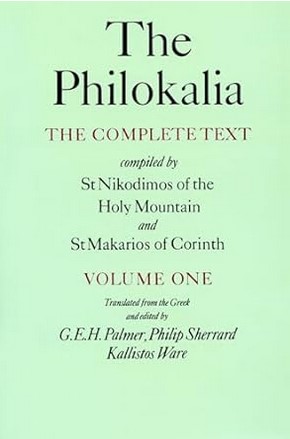
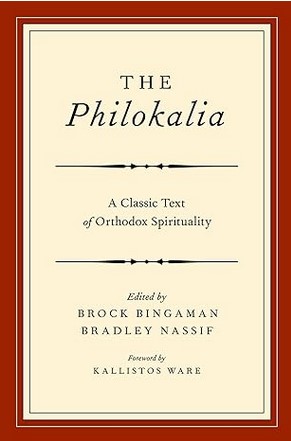

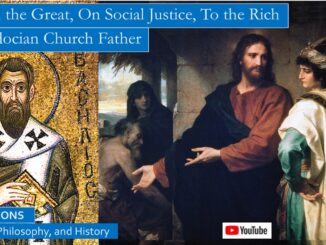
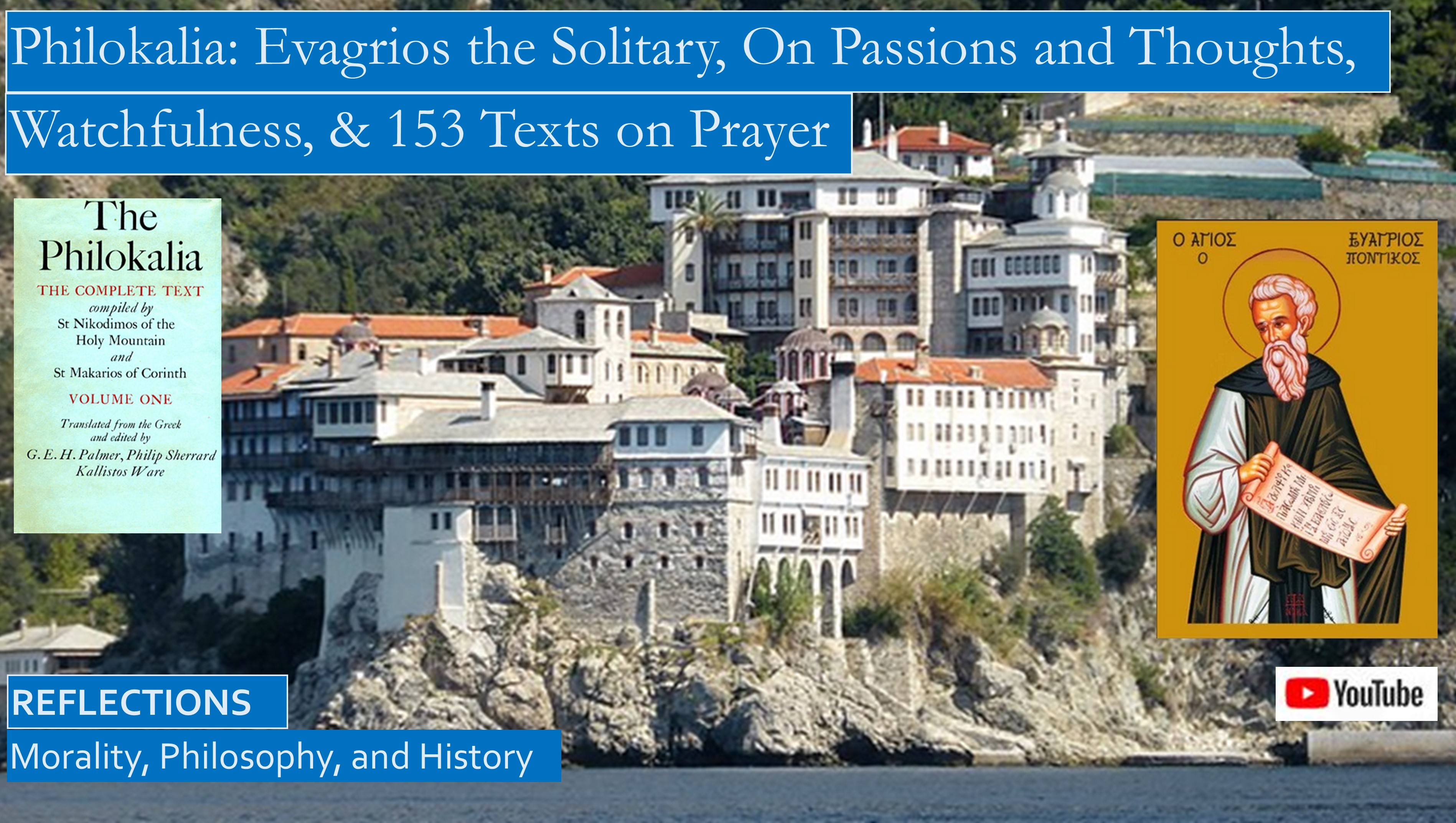
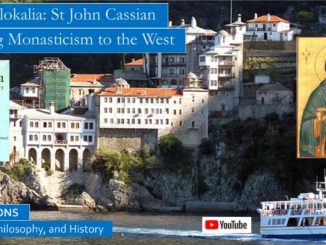
2 Trackbacks / Pingbacks